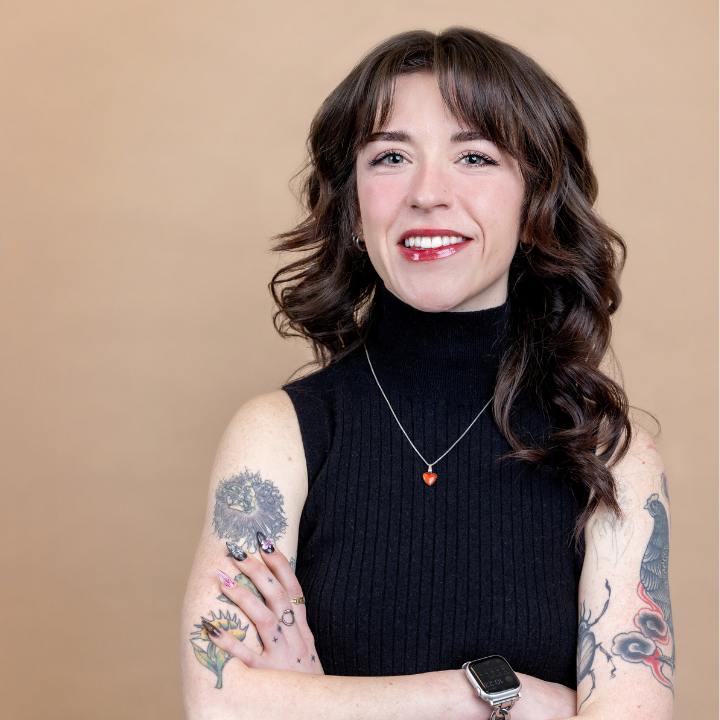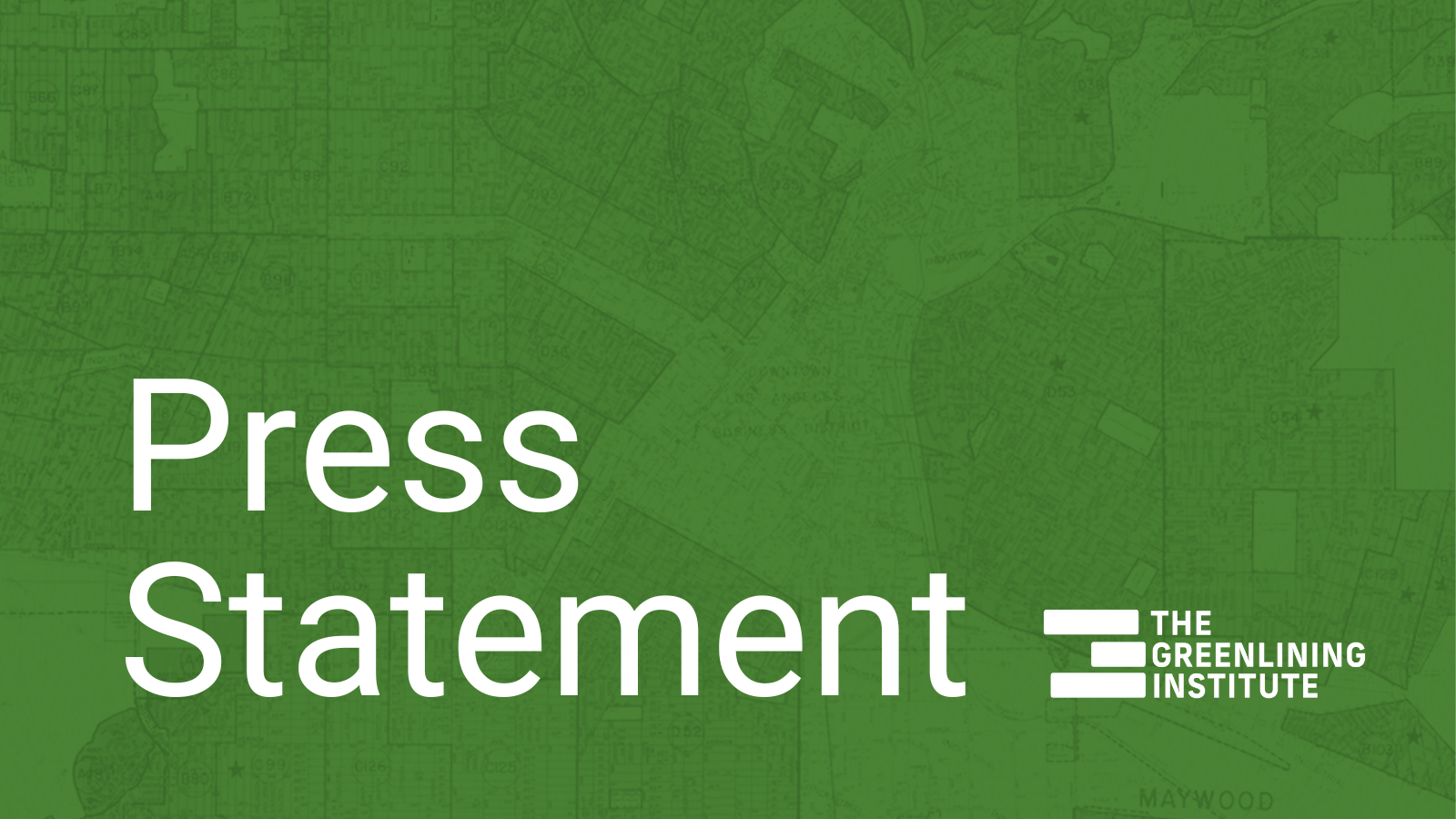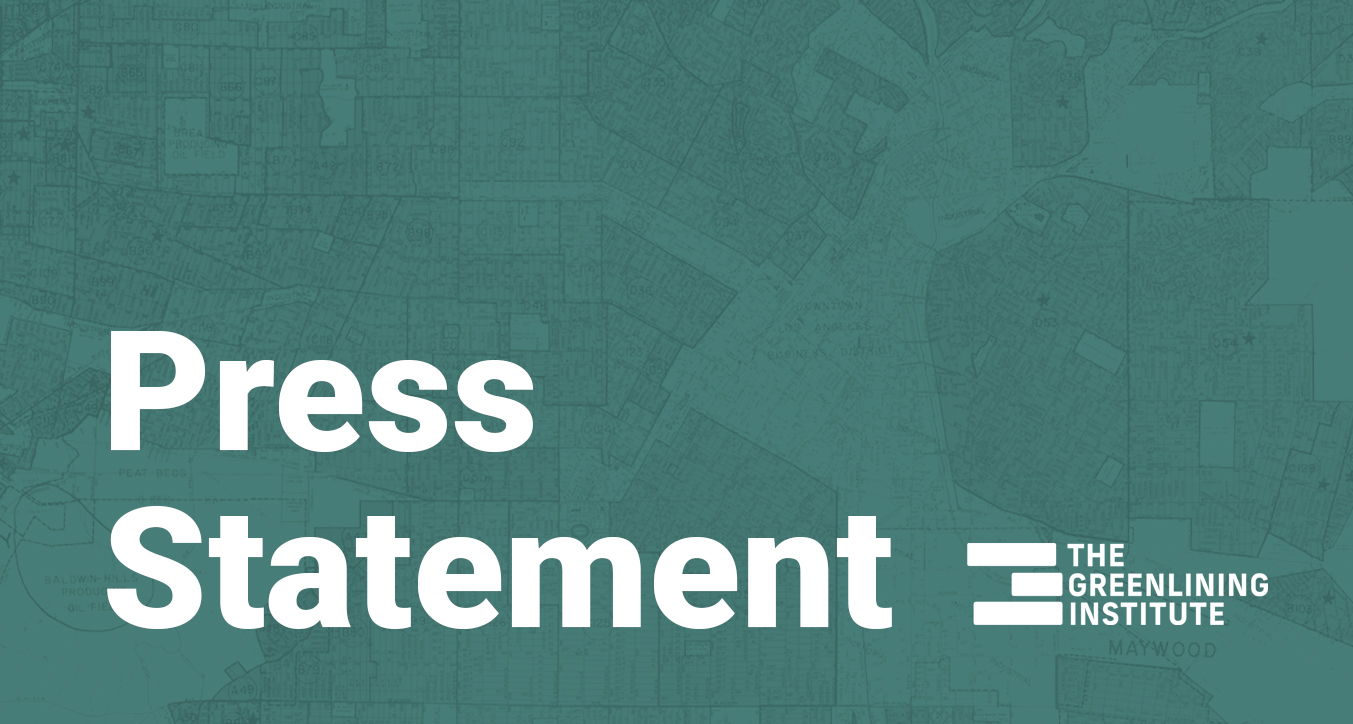Today pandemic, tomorrow climate change: How three Oakland orgs are connecting the dots

Media Contact
Danielle Bell
Associate Director of Narrative Strategy
media@greenlining.org danielle.bell@greenlining.orgBy Iris Crawford
The Oaklandside
The Asian Pacific Environmental Network, Greenlining Institute, and Movement Strategy Center are three Oakland-based social justice organizations strongly committed to tackling climate and environmental issues. Over the last six months, rather than pull them away from that mission, the global pandemic and Black Lives Matter movement have created new opportunities for positive change. The Oaklandside spoke to three activists from these organizations about how they’re adapting their work, finding the silver linings, and using the moment to mobilize their communities in ways that didn’t seem possible before.
‘What has changed is the landscape of opportunity’
The Asian Pacific Environmental Network has been organizing with Asian communities in the East Bay, primarily Chinese immigrants in Oakland and Laotian refugees in Richmond, for more than 25 years. Since its inception, the organization has embraced a broad view of environmental justice, one that places economic and social equity at the center of community health and wellness. “We’ve always been organizing towards working-class Asian immigrant communities being fully resourced and having what they need,” said APEN communications director Marie Choi.
In the context of the global pandemic, APEN’s “long term goals haven’t changed,” said Choi. “What has changed is the landscape of opportunity.”
The organization wasted no time when the pandemic hit: On March 19, the day Governor Gavin Newsom issued a stay-at-home order, APEN was at Oakland City Hall, advocating successfully for the City Council to pass an emergency moratorium on tenant evictions. In the weeks that followed, the organization was active in pushing for the establishment of emergency paid sick leave for Oakland workers during the pandemic. More recently, APEN urged the Oakland City Council to close loopholes in its existing eviction moratorium and strengthen tenant protections even further.
“Before the pandemic, to imagine a moratorium on this scale would have been difficult, but now it has become so clear,” said Choi. “This is the best chance that all of us have to get through this.”
Nearly six months ago, in the pandemic’s early days, APEN organizers called on its members to assess immediate community needs, which led to the creation of an Emergency Community Stabilization Fund to support struggling families and business owners. “Our organizers made calls to hundreds of our members to check in, and it just became really clear that people were going to need financial support, ” said Choi. APEN’s network responded, and the donations, big and small, rolled in. Thus far, the organization has distributed over $60,000 raised by the fund.
APEN has been fighting to avoid economic displacement of working class immigrants In Chinatown, where it has a broad membership base, for years. In 2008, APEN was at the table during negotiations with the city and developers, calling for the inclusion of renter protections, inclusionary zoning, and environmental assessments for the Lake Merritt BART Station Area Plan. Despite APEN’s efforts and those of other community advocates, said Choi, the plan’s protections for longtime residents of the neighborhood lacked teeth.
“At the end of the day, when BART finalized that plan it included the things that we were pushing for as recommendations,” she said, “but not as enforced rules.” The lack of enforcement, said Choi, was akin to a rubber stamp for developers. “If you drive around Chinatown now, literally every single block has luxury development happening.”
More than a decade later, and in the midst of a health and economic crisis, APEN is finding renewed support and new allies in its fight to stave off gentrification downtown. APEN is working closely with the Black Arts Movement Business District to help inform a different city development project, the Downtown Oakland Specific Plan, and to provide resources to anti-displacement projects centered around art. The collaboration with BAMBD, said Choi, is rooted in APEN’s belief that effective community organizing is intersectional.
“APEN was very much a part of the Black Lives Matter Movement efforts back in 2014 and physically hosted mobilization efforts that groups such as Asian for Black Lives were a part of,” said Choi. When the coalition to defund OPD took shape in the wake of George Floyd’s murder, APEN got involved immediately; the organization also helped to mobilize support for the successful movement to end school policing in Oakland Unified School District. Due to their many years of organizing and advocacy at the local and state level, said Choi, “we were already a part of a network of relationships built around trust.”
Founded in 1993 and headquartered in Oakland, The Greenlining Institute uses organizing, research, and policy to advance economic, racial, and environmental justice. When the pandemic spread and people began to realize the depth of its impact, the organization quickly understood it would need to redirect its energy to supporting the recovery effort.
“As an organization, we really had to reconsider how we would move forward knowing that a lot of the tools that we use for our advocacy were not going to be available to us, and reassess what current work would contribute to a just transition,” said Alvaro Sanchez, Greenlining Institute’s environmental equity director.
Greenlining joined APEN and more than 80 other health, environmental, and social justice organizations in developing a set of recommendations for achieving an equitable and just COVID-19 response and recovery. On June 10, the coalition sent their recommendations to California Governor Gavin Newsom and members of the Governor’s Task Force on Business and Jobs Recovery.
Their plan details three main strategies, the first of which is to “make equity real” in the state’s response effort, by protecting voting and other forms of civic engagement, making sure data stays publicly available, and addressing racial disparities during the pandemic. The second calls for the state to invest money where it’s needed most: “We are encouraging the state of California to make strategic investments in a Green Stimulus,” said Sanchez, “and prioritize investments that focus on our public health crisis, climate crisis and our economic crisis.” The final strategy outlines an economic recovery plan centered on job training, support for small local businesses, housing assistance, and support for those lacking technology.
“COVID-19 has really demonstrated that the issues that make our communities unhealthy have never been addressed, and until we address those root causes—whether it’s through another pandemic or climate change—our communities will always be impacted the most because we are at such a severe disadvantage.”
Sanchez, who comes from a family of immigrants, has had to grapple with the reality that his loved ones are more at risk of falling sick with COVID-19, simply because of who they are.
“My family members in L.A.—because of immigration policy, because of where they live, because of the need to have to work—currently have to continue to expose themselves to the virus by having to go to work and live in crowded housing,” he said. “Many cannot access federal and state unemployment insurance and there is fear about getting tested. No one wants to possibly alert immigration of their status.”
With the emergence of the pandemic and the urgency now surrounding the Black Lives Matter movement, said Sanchez, Greenlining is “doubling down on our unapologetic approach to race being a factor in the way we address these policy issues,” and seizing the opportunity “to make real transformative change.”
For the past year and a half, he said, Greenlining has been exploring what it means to be anti-racist. That included a group trip to Montgomery, Alabama, one of the epicenters of the Civil Rights Movement, which Sanchez described as “a transformative experience—to be with your entire staff and learn that history together.”
The current protest movement against anti-Black racism is encouraging Greenlining to ground its work even more firmly in its mission. “We have been using this moment to be more explicit about who we are and what we do,” said Sanchez. “Just the amount of organizations, individuals, and entities that are committed to this type of work here in the Bay is unmatched. What we, as racial justice organizations, need for the long term fight is just an incredible amount of solidarity.”
‘We’ve been here before’
The Oakland-based Movement Strategy Center works with organizations in the Bay Area and nationally to create transformational change, with programs focused on climate justice, youth and intergenerational organizing, gender identity, and local economies. After the onset of the pandemic, one of the first things MSC did was organize a relief fund to provide its many grassroots partners, individual contractors, and allies with resources needed to continue their social justice work during the economic shutdown.
“We were able to set up a contract to support the utility justice Reclaim Our Power campaign, which Movement Generation and Local Clean Energy Alliance are leading,” said Corrine Van Hook-Turner, MSC’s director of climate innovation. “This will allow them to continue the work of transforming our energy system and continue the fight with PG&E.”
In addition to the organization’s direct financial support, MSC staff were allowed to donate their personal sick leave to any of the organization’s fiscally sponsored projects.
“There were individual movements that we were connected to personally as staff,” said Van Hook-Turner. She described one MSC colleague who began organizing when she learned that a local motel had opened up as a shelter for unhoused people. “She made sure that the motel had basic needs like food, and resources, and was even able to start a donation fund to further support as well as figure out a way to transport folks to the motel.”
Van Hook-Turner said MSC is well positioned to observe the economic and health disparities being laid bare by the pandemic. “We saw the impact here in the Bay Area but because we do our work nationally, a lot of this was happening on similar scales all around the country.” The pandemic, she said, is exposing “the insufficiency of our economic and ecological systems that illustrate the damaged relationship with our planet.”
In May, the organization hosted a virtual Afro-Indigenous gathering, Wawa-Aba, to share “earth-based regeneration strategies,” urban gardening skills, and the use of plants and herbs to promote regeneration and spiritual grounding. The event featured a Black herbalist who spoke about resilience and how it can be cultivated with specific foods and herbal medicines. The event brought over 200 attendees from all over the country.
Most recently, the Movement Strategy Center launched the Young Black Climate Leaders Program. The project will support the work of five youth leaders in collaboration with a sponsoring organization, for 1-2 years as they plan and design Afrofuturist projects and campaigns focused on climate and other issues.
Director Van Hook-Turner said the program has an open-minded design and “will support a ‘dream it, create it, live it’ sense—a Wakanda-like methodology.” Youth will govern the program and shape it together, learn organizing skills, and engage in their own nomination process to recruit 20 other young people to further the work they begin.
“When the pandemic hit, there was a further sense of synchronicity, urgency, and alignment to launch,” said Director Van Hook-Turner. “The pandemic just reminds us that we’ve been here before and it is crucial that we are accelerating the rate at which we make a just transition, and make sure that Black and Indigenous people of color are at the center of leading this.”


